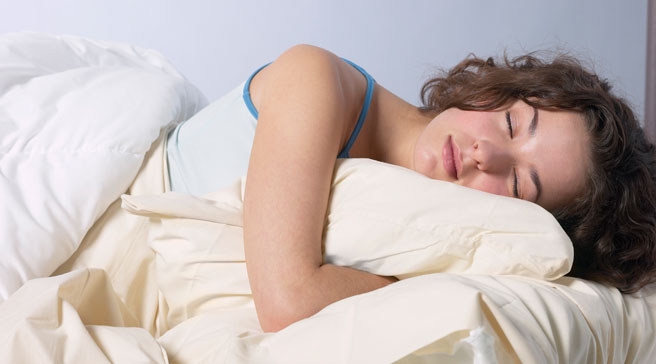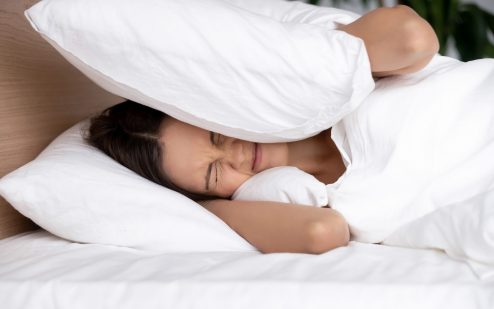10 ways to get a good night’s sleep
According to The Sleep Council, we’re in the grip of an insomnia epidemic. As well as leaving us tired and irritable, lack of sleep can have a long-term impact on our health and wellbeing. David Hurst goes in search of some shut-eye

1 Balance your yin and yang
In traditional Chinese medicine, it is believed that insomnia is caused by an imbalance between our yang (positive, aggressive energy) and yin (passive, gentle energy). By inserting needles at points along specific meridians in the body, an acupuncturist can restore that balance. ‘Acupuncture treatment brings about balance and harmony within the body and the mind,’ says acupuncturist Gerad Kite of London’s Kite Clinic. ‘We are part of nature and so we must respond to its natural movements. For example, when the sun rises we’re designed to become more active and when the sun sets we’re designed to rest. Any kind of imbalance can cause insomnia as everything in the body and mind are interconnected. By restoring balance and harmony to the whole system, sleep becomes a natural side-effect of treatment.’
2 Talk about it
Researchers at Laval University in Canada conducted a study of 160 adults with chronic insomnia and compared the effects of a course of cognitive behavioural therapy with a prescription sleeping pill. Weekly therapy sessions proved more effective for those with long-term insomnia than medication, helping patients to recognise, challenge and change unhelpful thoughts and behaviours around sleep. Find an accredited therapist at bacp.co.uk or ask your GP to refer you.
3 Boost your magnesium intake
‘Magnesium is an essential mineral to the human body and is often referred to as the relaxing mineral because of its role in relaxing muscles,’ says nutritionist Fiona Kirk. ‘In a trial carried out at Albert-Ludwigs University in Germany, people who suffered from restless leg syndrome and insomnia showed significant improvement after taking a 300mg magnesium supplement for four to six weeks.’ To get more magnesium in your diet, Kirk recommends eating plenty of nuts, wholegrains, beans, dark green vegetables, fish and lean meat. Alternatively, massage BetterYou Magnesium Oil GoodNight Spray, £14.50, onto your skin before bedtime.
4 Change your mindset
Nothing aggravates insomnia more than worrying about it. Dr Gregg D Jacobs, author of Say Good Night To Insomnia, has spent 20 years researching insomnia at Harvard Medical School and believes we can sleep better by replacing negative thoughts with positive ones. ‘If you’re lying awake, instead of thinking, “Oh no, I’m awake”, try thinking, “I always fall back to sleep sooner or later”,’ he says.
5 Feng shui your bedroom
According to the rules of feng shui, the bed should be positioned where it allows us to see the door, but without being right across from it. ‘It’s important to avoid sleeping with your head towards the door,’ says Jakob Jelling of Feng Shui Crazy. ‘And avoid sleeping under a window as it will have a bad impact on your chi and might cause you to lose some of your positive energy by dispersing it.’
6 Surround yourself with calming colours
Decorate your bedroom in blues, greens and purples as these colours aid relaxation. ‘The most restful are the electrical colours blue, indigo and violet,’ says colour therapist Jules Blythe. ‘Green represents harmony and works on the parasympathetic nervous system. Blue is cooling and calming, and works on the respiratory system. Violet is a balancer of the body and mind. It works on the central nervous system to induce relaxation and aid sleep.’
7 Try aromatherapy Psychologists at Wesleyan University in the US asked 31 men and women to sniff lavender essential oil one night and distilled water the next for four two-minute periods just before bedtime. Their sleep cycles were monitored with brain scans and it was discovered that lavender increased slow-wave sleep, the deep, restorative slumber in which the heartbeat slows and muscles relax. ‘Lavender is amazingly effective,’ says Lisa Helmanis, author of Sleep Better Naturally. ‘In studies published in the medical journal The Lancet, lavender has been shown to be as effective as sleeping pills.’ Sprinkle a few drops of lavender oil on your bed linen or add to a warm bath.
8 Go for a walk at lunchtime
Researchers from the University of Arizona Respiratory Sciences And Sleep Disorders Center analysed data from a study involving 700 men and women. They concluded that ‘regular exercise is associated with a reduction in the prevalence and risk of symptoms of disturbed sleep’. They found that people who walked a mile or more each day had 33 per cent fewer sleep disturbances (including difficulties in getting to sleep) than those who walked less. However busy you are at work, take a break and make time for a lunchtime stroll.
9 Avoid alcohol before bedtime
A nightcap might seem like a good idea at the time, but drinking alcohol in the evening is disruptive. ‘Alcohol will make you fall asleep much faster, but it causes a lot of brain arousal once it’s metabolised, which usually happens during the second half of the night,’ says Dr Ulysses Magalang, director of the sleep programme at Ohio State University Medical Center.
10 Have a wind-down routine
‘Getting plenty of fresh air and exercise and following a healthy diet all contribute to improving sleep quality, but it’s just as important to learn how to wind down,’ says Jessica Alexander of The Sleep Council. ‘Happy, relaxed thoughts promote happy, relaxed sleep.’ Log on to sleepcouncil.com and tune in to its Can’t Sleep? vodcast, which demonstrates a calming visualisation exercise and meditation technique that you can practise at bedtime to help you wind down and calm your mind.








